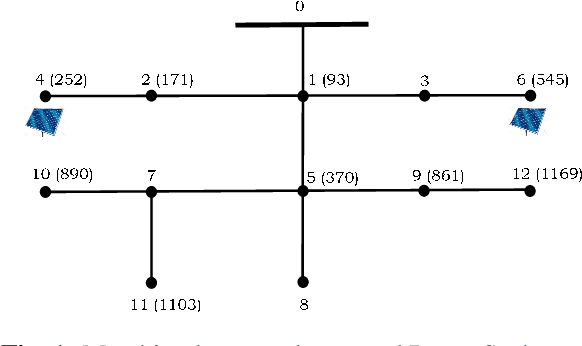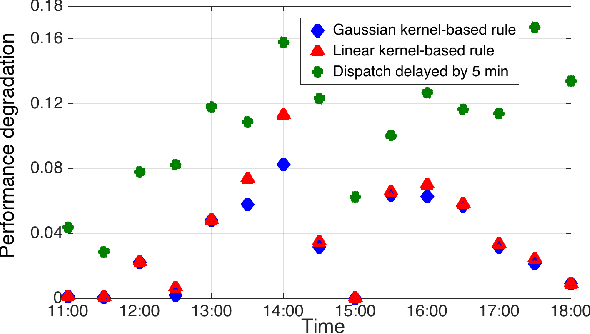Kernel-Based Learning for Smart Inverter Control
Paper and Code
Jul 10, 2018

Distribution grids are currently challenged by frequent voltage excursions induced by intermittent solar generation. Smart inverters have been advocated as a fast-responding means to regulate voltage and minimize ohmic losses. Since optimal inverter coordination may be computationally challenging and preset local control rules are subpar, the approach of customized control rules designed in a quasi-static fashion features as a golden middle. Departing from affine control rules, this work puts forth non-linear inverter control policies. Drawing analogies to multi-task learning, reactive control is posed as a kernel-based regression task. Leveraging a linearized grid model and given anticipated data scenarios, inverter rules are jointly designed at the feeder level to minimize a convex combination of voltage deviations and ohmic losses via a linearly-constrained quadratic program. Numerical tests using real-world data on a benchmark feeder demonstrate that nonlinear control rules driven also by a few non-local readings can attain near-optimal performance.
 Add to Chrome
Add to Chrome Add to Firefox
Add to Firefox Add to Edge
Add to Edge